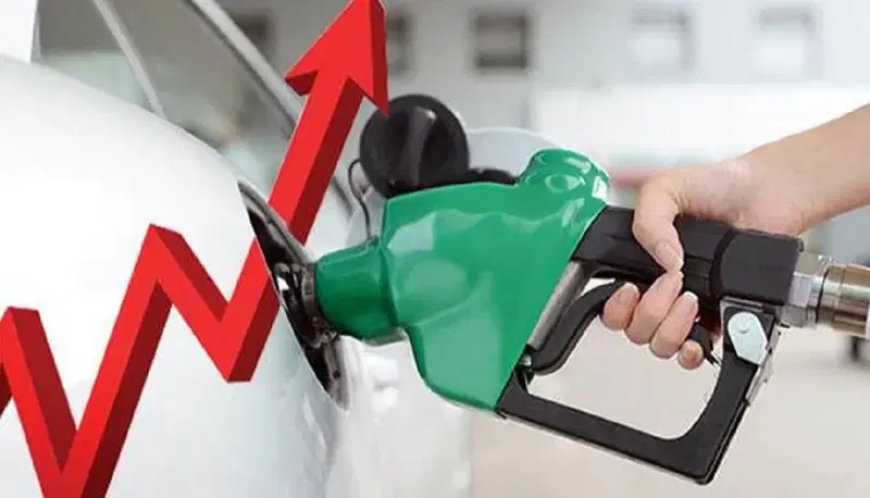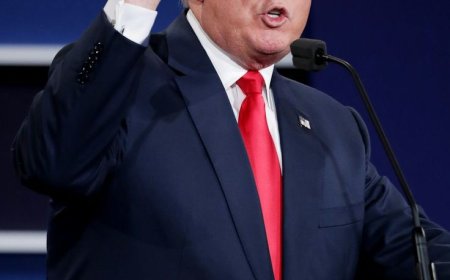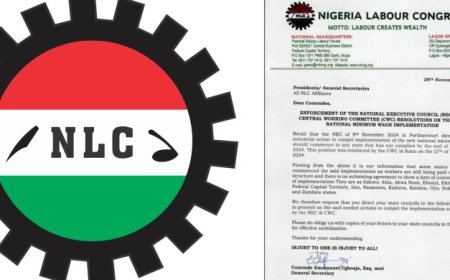Nigeria's Fuel Price Conundrum: A Multifaceted Crisis
This article discusses the recent surge in fuel prices in Nigeria, its far-reaching consequences on the economy, environment, and society, and the need for a balanced approach to address the issue.Nigeria's fuel price hike has sparked widespread debate and concern. The removal of fuel subsidies and volatile global oil market have led to significant price increases, affecting the economy, environment, and society. The article explores the historical context, economic implications, and social impacts of the fuel price surge, highlighting the need for sustainable energy and economic stability.

The recent surge in fuel prices in Nigeria has sparked widespread debate and concern across various sectors. With the removal of fuel subsidies and the volatile global oil market, the impact on the economy, environment, and society has been profound and far-reaching. Until the early 70’s, the mainstay of Nigeria economy was agriculture. Then the country was famed for her proficiency in the production of groundnuts hence the Kano groundnut pyramids, oil palm and the faster part of cocoa in the western part of the country.
The discovery of oil in the country in commercial quantities brought about radical changes in the economy of the nation. All other sectors seemed to have gone into oblivion and indeed were abandoned thereby making the country to be totally dependent on oil for her foreign exchange earnings; not agriculture any more. All effort made since then to diversify the economy of the country have come to naught. Expectedly the narrowing of the economy to a monolithic export commodity has its attendant drawback as oil by virtue of its importance to the economics of nations has inevitably become a subject of political manipulation. But the greater danger for Nigeria is that as a sole commodity of the nation and the inherent total dependency on oil has made the country’s economy revolve around it.
Virtually all essential service rendered in the country revolves it. Almost all other sectors of the economy depend on oil. Any contemplation therefore of a possible scarcity or unavailability of the product will no doubt spell doom for the economy of the country. Nigeria's journey with fuel prices has always been a rollercoaster. Historically, the government provided subsidies to keep fuel prices low. However, these subsidies were recently removed, leading to significant price hikes. The decision was influenced by the need to address budget deficits and reduce corruption in the subsidy regime. For instance, since the removal, petrol prices have surged by over 50%, causing ripples across the economy, rising from the 400 naira/litre which was already seen as being too high, to 1100/litre in the country today.
The fuel price hike has had staggering effects on the economy. Last week, a groundswell of condemnations continued to trail the latest increase in the pump price of premium motor spirit (petrol) as announced by the Nigerian National Petroleum Company Limited (NNPCL) two weeks ago, with analysts saying Nigerians have indeed reached the breaking point.
Although this administration has courted public anger many times with its anti-people policies, this time, it stirred up a hornets’ nest when the NNPCL raised the pump price of petrol to over N855 across its retail outlets amid long queues at filling stations but sold above N1,000 per litre in other stations. And characteristic of the government’s tactics in times of crisis, the Minister of State (Oil) Petroleum Resources, Heineken Lokpobiri said the federal government was not responsible for the recent petrol price increase across the country.
Nigerians woke up on Tuesday to see a change in the pump prices from around N600 to N855/litre, N918/litre, and above, depending on the area of the purchase at NNPC stations nationwide. As expected, prices of goods and services jumped in an unprecedented manner, thus worsening the state of poverty in the country. This increase was felt in the transport sector, particularly in goods and services costs. While Lokpobiri and NNPCL were busy playing with words on the latest petrol price hike and saying it was all about market forces, President BolaTinubu was saying in faraway China that the increase was because he had to take “hard decisions” for the sake of Nigeria’s development.
In a statement, the Nigeria Labour Congress (NLC) alleged that the federal government had undertaken, during the N70,000 minimum wage deal with organised labour, not to approve further hikes in the price of petrol. It called The drama, however, took a new turn with the arrest of the NLC President Joe Ajaero on Monday morning. the recent price hike a betrayal by the government. The presidency, as usual, denied making any undertaking not to increase fuel prices. The drama, however, took a new turn with the arrest of the NLC President Joe Ajaero on Monday morning. He was released later after the NLC threatened to shut down the nation’s economy.
Let’s take a moment to recall...
As far back as 2009, we bought fuel for N87/litre. We almost rioted when petrol was selling for about N167/litre, saying it was absurd to sell at that price. I wonder what the “ghosts” of 2009 will say if they see how much fuel is being sold at now.
It is funny Nigeria has and most times boasts of having crude oil, but cannot boast of a single working refinery. Nigeria makes getting fuel from crude oil seem like a hard thing to do, when in fact to get diesel, fuel, kerosene, etc, is a simple and straight forward process. It makes no sense that the “giant of Africa” cannot boast of producing a commodity that can help the situation of people around them.
The fear from many quarters is that the latest price hike could trigger social unrest as indices are showing a consistent widening of the gap between the rich and the poor. This is perhaps why a frontline economist and Chief Executive Officer of Financial Derivatives Company Limited (FDC), Mr. Bismarck Rewane projected that the latest increase in the pump price of petrol by 50.1 per cent, from N568 to N855 per litre, would take N5 trillion from Nigerian consumers to the government and heighten energy poverty.
In his monthly presentation at the Lagos Business School (LBS) Breakfast, titled, “All That Glitters are Not Gold,” Rewane said although the price hike could strengthen the exchange rate of the naira, as liquidity decreased, he insisted that the development “may instigate social unrest as citizens react in frustration.”
The fuel crisis is so terrible that people will do almost anything to lay their hands on the commodity. About two weeks, there was a tragic breaking news that shocked Nigerians. An overturned fuel tanker exploded on Tuesday night in northern Nigeria, killing at least 153 people who had rushed to the scene of the accident to collect leaking petrol, officials said. The fire engulfed the vehicle, which had been cordoned off by officers after it crashed in Jigawa state, the police told the BBC. About 100 other people were also injured in the explosion and were taken to hospitals in the region, with many of them in critical condition.
As sad as this is, it is the reality of the hard times the country has been undergoing. Transportation cost is almost unbelievable at this point. It has gotten to the extent that the price of a short distance is as high as our two highest currency notes, showing how weak our currency is in the global market today.
ActionAid, a global federation, in a statement, signed by its Country Director, Andrew Mamedu, said “Since President Bola Ahmed Tinubu assumed office in May 2023, the removal of fuel subsidies has led to a harsh economic reality for many Nigerians. Despite efforts to recover, the federal government’s decision to allow fuel prices to surge again has worsened the situation, leading to a ripple effect on the economy.
“Since then, fuel prices have continued to rise steadily. By August 2023, it reached N626.70 and continued to fluctuate, rising to N668.3 in January 2024 and N770.54 in July 2024. As of September 2024, it has increased again to a staggering N1100 per litre, which greatly worsens the situation for many Nigerians.”.
“The cost of doing business will skyrocket, prices of goods will rise, and some firms may shut down due to low demand in the face of weakening consumer purchasing power. Of course, this will be followed by job losses.”
In the same vein, the National Association of Chambers of Commerce Industry and Agriculture (NACCIMA), in a statement by its National President, Dele Oye, called on the federal government to engage in constructive dialogue with relevant stakeholders, including the organised private sector and labour unions, to address the concerns raised about the price increase and its potential effect on the economy.
The fuel price surge in Nigeria is a multifaceted issue with deep economic, environmental, and social implications. Addressing it requires a balanced approach that considers immediate relief measures and long-term strategies for sustainable energy and economic stability.
What's Your Reaction?




































































































